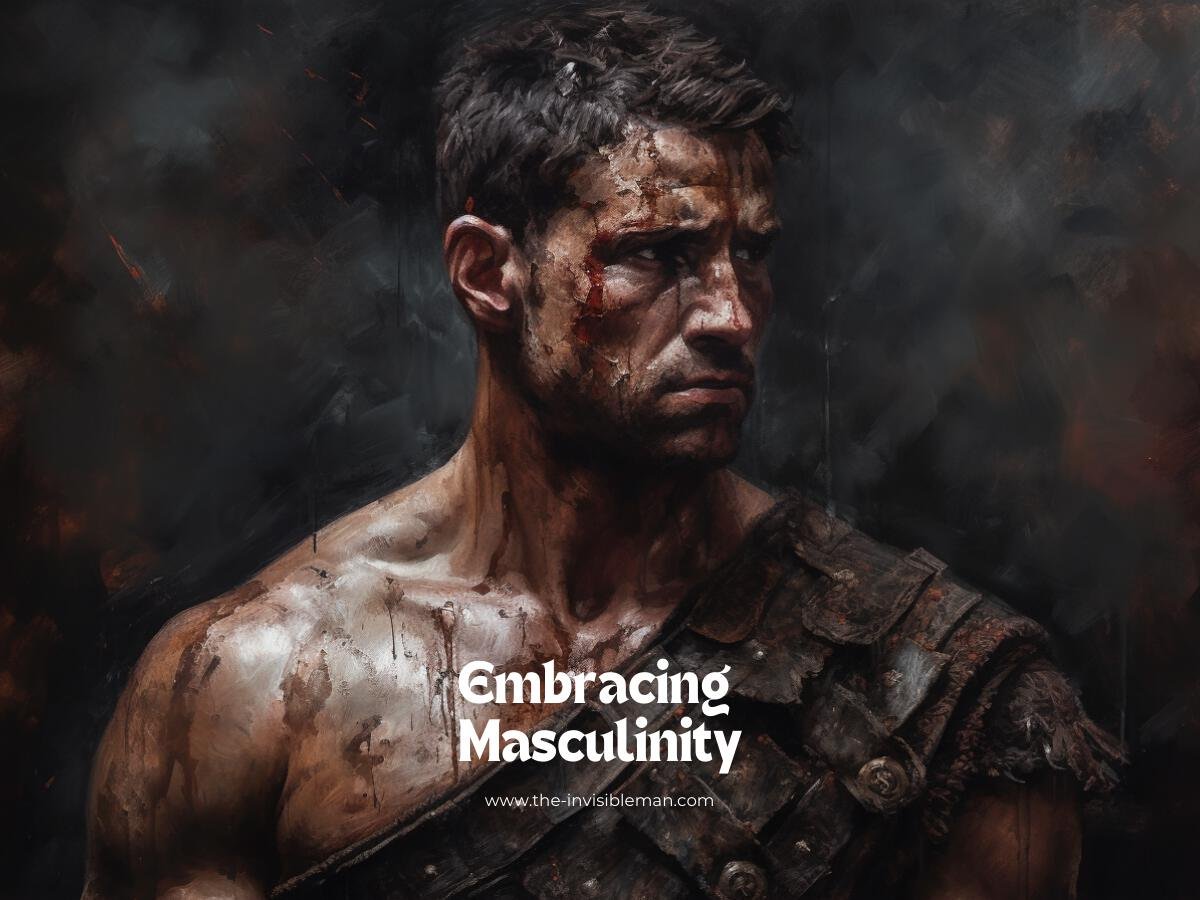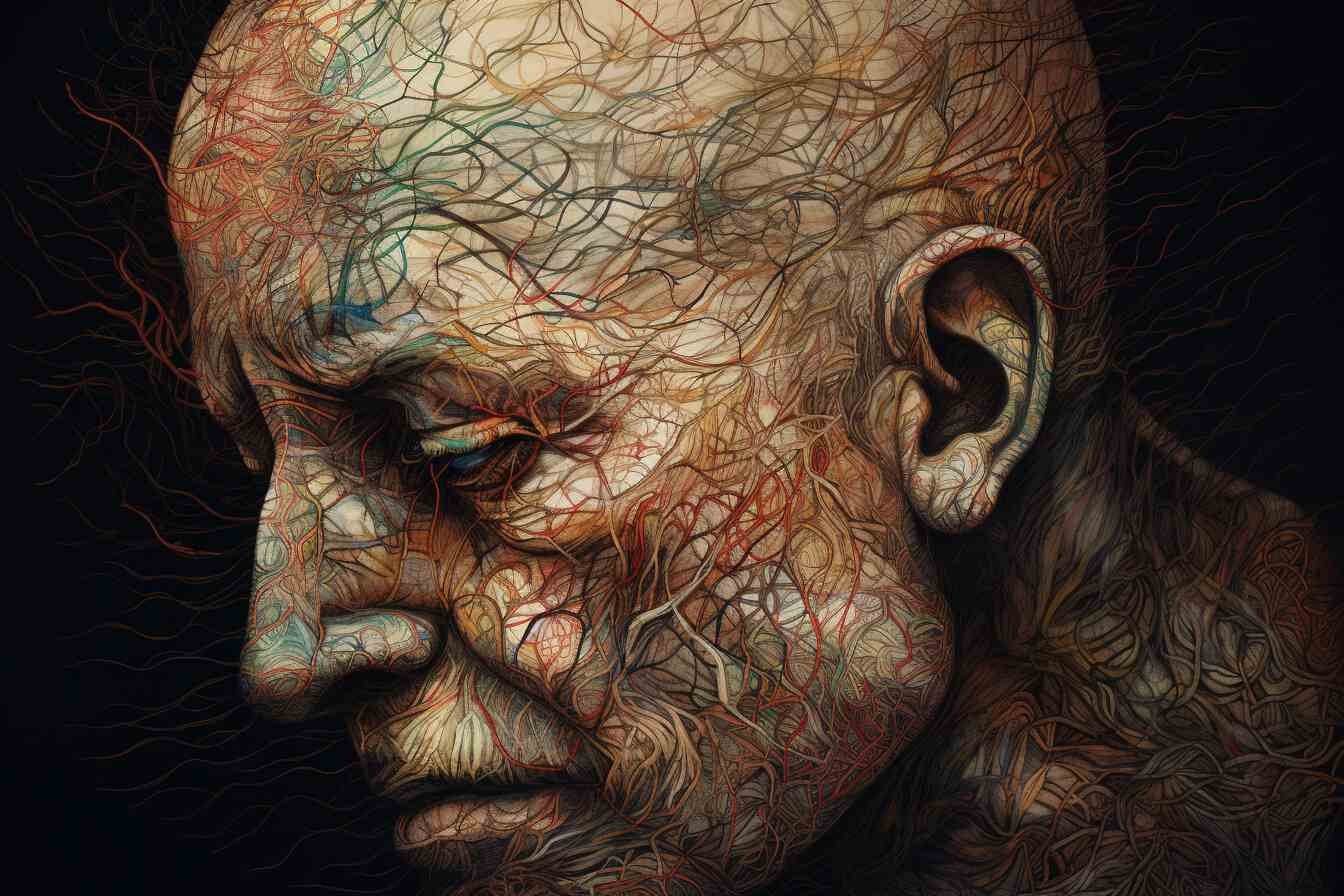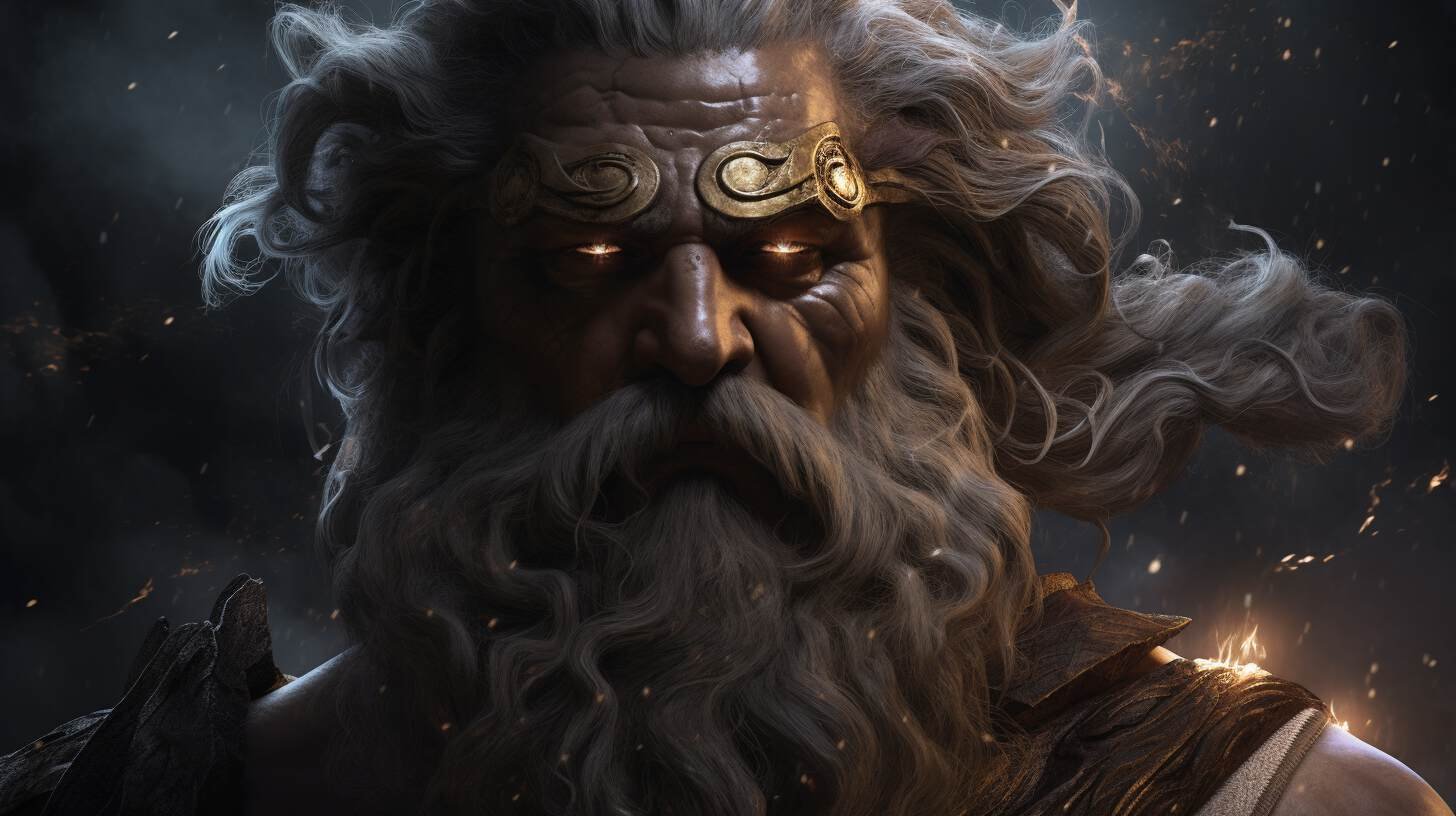Embracing Masculinity - What Is It And Why It Matters
Table of Contents Show
Masculinity stands as a paradox, a riddle wrapped in a mystery. It is a concept that is as revered as it is reviled, as misunderstood as it is misinterpreted. The trending and extreme narratives “reject modernity, embrace masculinity” or its polar opposite “its ok to be vulnerable” only serve to fuel this paradox, forcing men to wrestle with an imaginary dichotomy.
There is no masculinity paradox, because it is naturally holistic and not a singular function.
1. What Does Embrace Masculinity Mean?
Embracing masculinity is not about adhering to a rigid stereotype. It's about acknowledging the inherent nature of men, the biological and psychological traits that have been shaped by millions of years of evolution.
It's about recognizing that men are wired to be competitive, to strive for dominance, to seek out challenges and confront them head-on.
Finally, it's about understanding that these traits are not inherently negative, but can be harnessed for positive ends.
2. The Virtues of Masculinity
Resilience, Tenacity, Courage, Determination, Confidence and Vigour are the virtues that define masculinity.
Resilience, the ability to endure hardship and keep pushing forward.
Tenacity, the capacity to withstand pain and adversity.
Courage, the mental and emotional strength to face challenges with courage.
Determination, the drive to lead and influence.
Confidence, the readiness to confront and overcome obstacles.
Vigour, the physical and mental power to protect and provide.
These virtues, when channelled properly, are the engines of progress and achievement.
3. The Misunderstood Concept of Masculinity
Yet, masculinity is often misunderstood and maligned. It's seen as a source of oppression and inequality, a relic of some examples of toxicity that in any way do not have a place in society, regardless of gender, race, or religion.
But this view is misguided as it fails to recognize the positive aspects of masculinity, the ways in which the masculine virtues contribute to individual success and societal progress. It overlooks the fact that men, by their very nature, are driven to compete, to innovate, to strive for excellence.
To embrace masculinity, then, is to reject the notion that masculinity is inherently toxic or harmful. It's to understand that the masculine virtues, when properly understood and channelled, can be a force for good.
It's to recognize that men have a unique role to play in society, a role that should be celebrated and encouraged, not denigrated and suppressed. It's to stand up and say, unapologetically, that it's okay to be a man, that it's okay to be masculine.
4. The Importance of Embracing Masculinity
Masculinity, when embraced, serves as the backbone of society. It's the driving force behind the progress we've made as a civilization. It's the grit and toughness that built our cities, the determination that defended our lands, and the strength that propelled us into the stars.
Embracing masculinity, then, is about accepting and performing the role that nature has bestowed upon men. It's about rejecting all the narratives that seek to blur the lines between the sexes, and instead, choosing to embody the virtues of strength, action, and fortitude.
However, masculinity is not just about physical prowess, it's also about mental fortitude. It's about the ability to face adversity head-on, to stand firm in the face of danger, and to make tough decisions when necessary. It's about leadership, responsibility, and the willingness to sacrifice for the greater good.
On an individual level, embracing masculinity can lead to personal growth and development. It can foster self-confidence, resilience, and a sense of purpose. It can also lead to improved physical health and mental well-being.
On a collective level, the impact of masculinity is even more profound. It's the driving force behind societal progress and innovation. It's the spark that ignites the flame of competition, pushing us to strive for excellence and to constantly improve. It's the glue that holds our communities together, fostering cooperation and mutual respect.
5. How To Embrace Positive Masculinity
To embrace positive masculinity, one must first understand what it means to be a man. Following are the timeless principles on how to embrace positive masculinity:
Developing mental toughness and resilience because it's not just about physical strength or aggression.
Standing up for what you believe in, even when it's not popular.
Taking responsibility for your actions and owning up to your mistakes.
Treating others with respect and dignity, regardless of their gender, race, or social status.
Being a provider and a protector, for not just the well-being of your family, but for the community.
An individual who exemplified all these traits of positive masculinity was Abdul Sattar Edhi, a Pakistani philanthropist, ascetic, and humanitarian who founded the Edhi Foundation, which runs hospitals, homeless shelters, rehab centres, and orphanages across Pakistan. Despite access to wealth, he lived a life of simplicity, dedicating his entire life to helping those in need.
Edhi was born in 1928 in Bantva, Gujarat, British India. He moved to Karachi where he established a free dispensary for Karachi's low-income residents. Edhi's charitable activities expanded in 1957 when an Asian flu epidemic swept through Karachi. Donations allowed him to buy his first ambulance, a second-hand Hillman pickup truck, which he himself drove around the city, transporting the sick and dead.
His work expanded greatly over the years, with the Edhi Foundation, funded entirely by private donations from ordinary people, providing services like a network of over 1,800 ambulances, blood and drug banks, rehabilitation of drug addicts, orphanages, clinics for the mentally handicapped, homes for abandoned women and children, and educational services.
What Edhi exhibited was a figure who challenged the traditional norms of masculinity. He wasn't a muscular, domineering figure, but a frail, humble man who dedicated his life to service. His strength was despite his size, physical, moral and spiritual.
He was a man who embraced his masculinity not by exerting power and control, but by showing compassion, humility, and a relentless drive to help others. His life is a testament to the fact that masculinity is holistic, and not just about physical strength, nor about being vulnerable, but about an overall owner of responsibility, selflessness, and moral courage.
6. Four Rules of Masculinity
There are 4 tenets of resilience, independence, integrity and courage are the rules associated with masculinity that have stood the test of time:
Resilience: The first rule of masculinity is strength, not just physical, but mental and emotional as well. It's about standing tall in the face of adversity, about having the resilience to weather the storm. It's about the courage to face your fears, to step out of your comfort zone, to take risks. It's about the strength to protect, to provide, to persevere.
Independence: A man is expected to be self-reliant, to be able to stand on his own two feet. This doesn't mean that he can't ask for help or lean on others when needed. It means that he has the ability and the confidence to take care of himself and his responsibilities.
Integrity: A man is expected to be honest, to be a man of his word. He is expected to have a moral compass, to know right from wrong, and to choose the right path even when it's not the easy one. He is expected to treat others with respect, to be fair and just.
Courage: A man is expected to be brave, to face challenges head-on. This doesn't mean that he doesn't feel fear. It means that he doesn't let fear stop him. He is willing to fight for what he believes in, to stand up for those who can't stand up for themselves.
7. What Is Perfect Masculinity?
Perfect masculinity in its purest form, the one that manifests resilience, independence, integrity and courage. However, the notion of perfect masculinity is not a modern invention, but a timeless ideal that has been celebrated and revered throughout history, literature, and religion.
The knight of medieval times, for instance, was expected to embody chivalry, a code of conduct that included not just physical prowess and bravery, but also virtues such as honor, courtesy, and compassion. The knight was expected to protect the weak, to serve his lord faithfully, and to conduct himself with dignity and honor. This is not a far cry from the ideals of masculinity that we aspire to today.
Another example is the religion Islam, which obliges men to adhere to the cardinal tenet of respecting women to such a degree that it is said that heaven is to be found under the feet of one's mother. This is a far cry from the stereotype of the domineering, oppressive masculine figure that is often portrayed in modern discourse.
Hence, the quest and definition for the ideal masculine identity is not a new phenomenon. It is a journey that men have embarked upon throughout history, a journey that has been shaped and influenced by cultural, religious, and societal norms.
8. What Does “Embracing Masculinity is Toxic” Mean?
Toxic masculinity, a term that has been thrown around with reckless abandon, is the perversion of the masculine ideal. Therefore, as soon as an individual embraces or expresses masculinity, it is immediately classified as toxic. Toxicity is a universal plague that transcends gender, age, race, religion, but ironically only used for masculinity.
This modern day construct twists and distorts the image of manhood depicting it as an entity that glorifies dominance, aggression, and violence at the expense of empathy, compassion, and collaboration. It explains masculinity as embodying the worst aspects of human behavior, the ones that cause harm to both the individual and society at large.
We should stop for a moment, and think about why the term "toxic masculinity" should just be an indictment of men or masculinity. It should in fact critique all toxic behaviors that are harmful, destructive, and ultimately self-defeating from wherever they come from, across genders, race and religion.
A case in point is Conor McGregor, the infamous UFC fighter known for his brash demeanor and controversial antics. McGregor embodies the worst aspects of toxic behavior. His provocations towards religion, family, and his opponents are not signs of strength or manhood, but rather a desperate attempt to assert dominance and control.
Then there is Ronda Rousey, a former UFC women’s champion also known for her aggressive behavior and lack of sportsmanship. Her toxic behavior towards her opponents, her refusal to shake hands after fights, and her overall lack of respect for her competitors are all examples of toxic behavior as well.
Hence, toxicity goes beyond gender, race, religion or age. It's a human problem, not a gender problem. And the solution lies not in demonizing masculinity or femininity, but in promoting healthy, balanced expressions of both..
9. How To Embrace Your Masculine Energy?
Embracing your masculine energy is not about puffing your chest out or being the loudest in the room. It's by being true to yourself, by honoring strengths, acknowledging weaknesses, by standing up for what beliefs and against what you don't. By being a leader, a protector, a provider. By being a man.
Consider the example of Elon Musk, the visionary entrepreneur behind SpaceX and Tesla. Musk is not your stereotypical macho man. He's not physically imposing, he's not aggressive or domineering. But he embodies the essence of masculine energy. He's a leader, a creator, a problem solver. He's driven by a vision, a purpose, a mission. He's not afraid to take risks, to challenge the status quo, to push the boundaries of what's possible. He's a testament to the power of masculine energy when it's harnessed and directed towards a positive end.
10. How Do You Embrace More Masculine Energy?
Embracing more masculine energy is not a matter of brute force. It can only be amplified further by developing a profound understanding of the inherent power and learning to channel it in a constructive manner. It's about rejecting the societal narrative that masculinity is inherently toxic and instead, embracing the positive aspects of it.
The 3 ways to amplify masculine energy even more are by pursuing physical labour, cultivating a sense of purpose and emotional resilience.
Physical Labour: One of the most effective is physical labour, either in the form of exercise or doing something with your hands. Regular physical activity not only improves physical health but also boosts your confidence and self-esteem. It's a way of asserting your presence in the world, of claiming your space. It's a way of saying, "I am here, and I am capable."
Cultivating a sense of purpose: Men who have a clear sense of purpose in life tend to exhibit more masculine energy. This purpose can be anything from a career goal to a personal project to a commitment to serve others. The key is to have something that drives you, something that gives your life meaning and direction.
Cultivating emotional resilience: This means learning to manage your emotions effectively, to face adversity with courage and determination, and to bounce back from setbacks with renewed vigour. It means rejecting the idea that men should suppress their emotions and instead, learning to express them in healthy and constructive ways.
11. How To Regaining Masculinity in Relationships
In relationships, the concept of masculinity is often misconstrued, leading to a disconnection between partners. To regain masculinity in a relationship, it's not about asserting dominance or control, but about embracing the core tenets of masculinity - responsibility, respect, and emotional strength. It's about being a pillar of support, and a source of unwavering love. It's about rejecting the modernity that paints masculinity as a toxic trait and embracing the masculinity that fosters growth, understanding, and unity in a relationship.
12. Conclusion
The future of masculinity is to recognize that it is not the problem that we should try to solve, because it is not the problem. Rather the world should focus on addressing toxicity and intolerance at large, that transcends gender, race and religion.




























